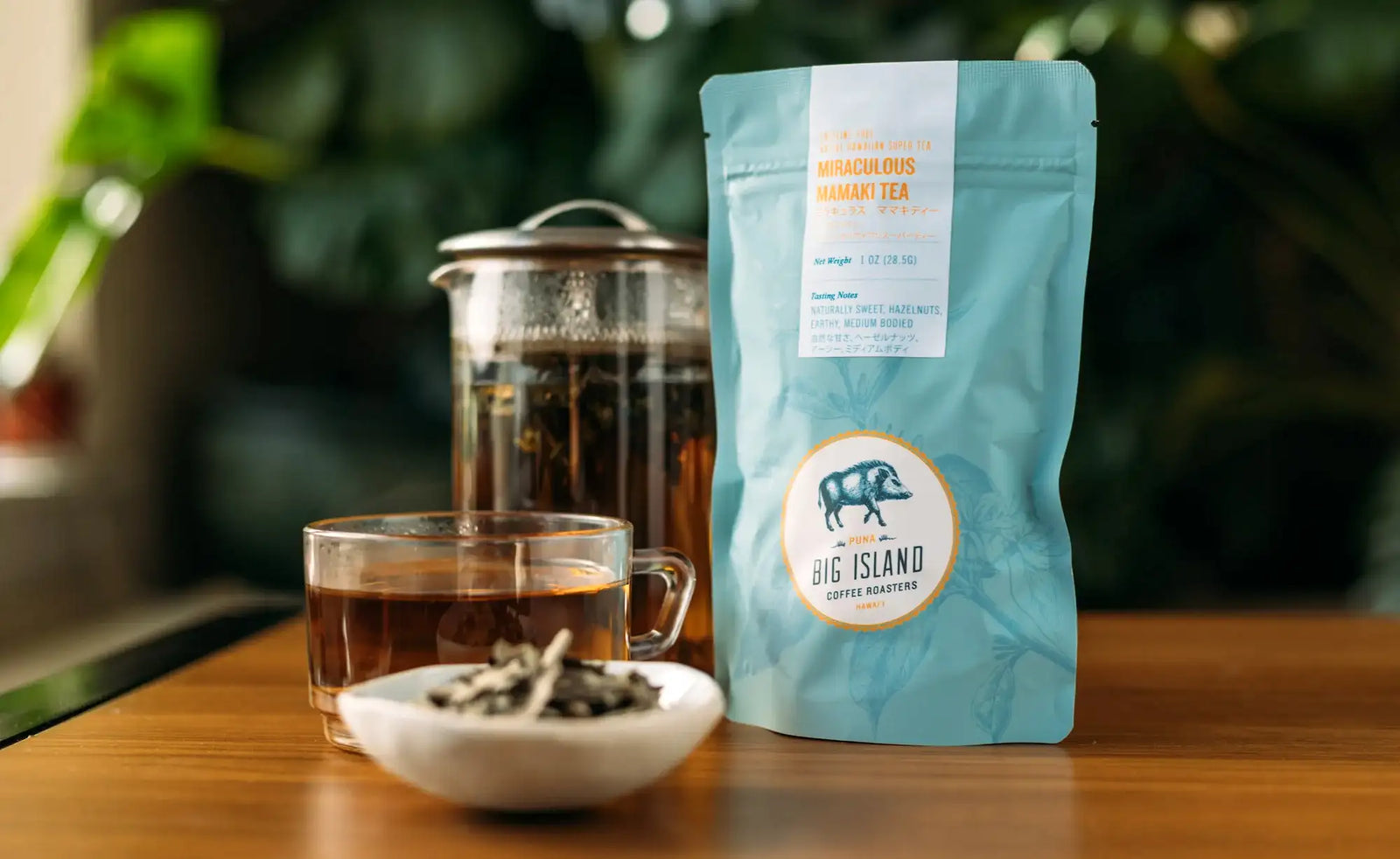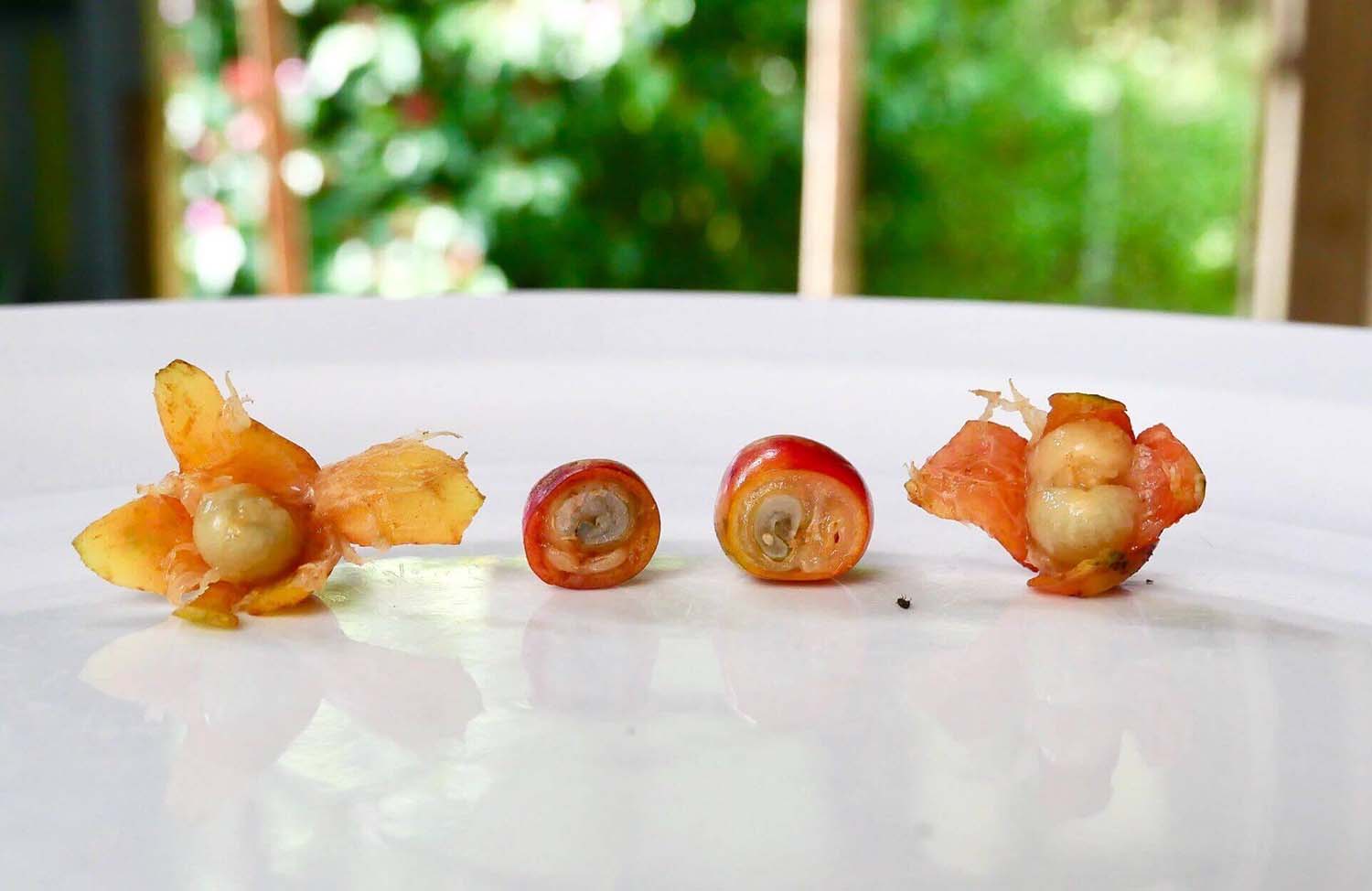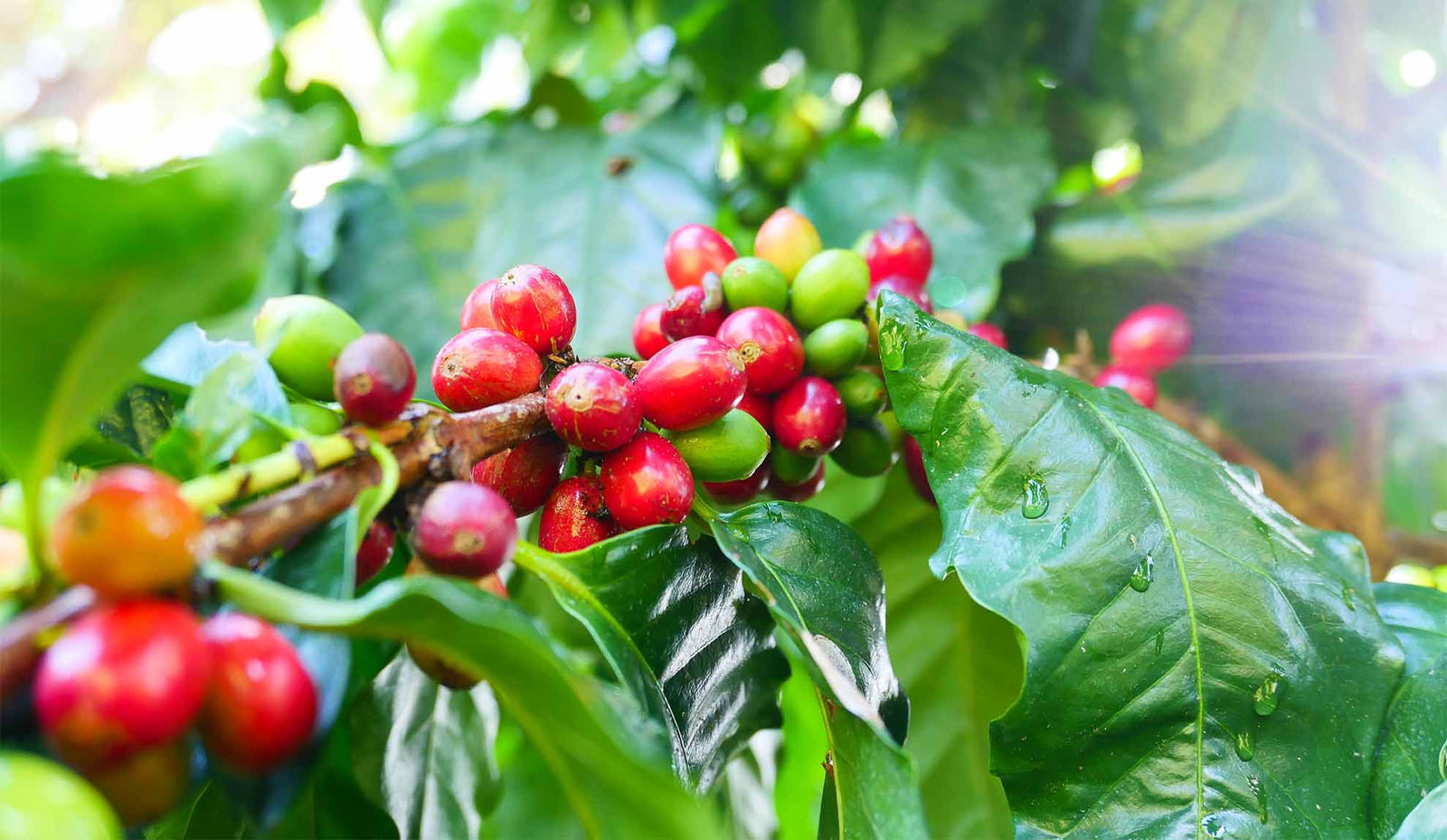Deep in Hawaii's lush volcanic jungles, Pipturus albidus grows both wild and cultivated. Better known as māmaki, Native Hawaiians have used the māmaki plant for its medicinal properties for centuries in their lā'au lapa'au, or traditional Hawaiian medical practice.
Mamaki comes from the nettle family, so while it's technically not a tea, the leaves of this plant can be used to brew an all-natural herbal beverage with several supposed health benefits, from lowering blood pressure to aiding with depression. Fans of the nettle family of plants know it's common to find nettles with a wide range of benefits. Mamaki also plays a huge role in rainforest restoration efforts, making it a real super-plant.

Photo courtesy of Hawaii Rainforest Farms
What is Mamaki?
Let's start by talking about the māmaki plant itself. Māmaki is endemic to Hawaii, meaning that it was growing on the islands far before humans arrived. As such, it has been a part of native Hawaiian culture for many generations.
The māmaki tree belongs to the same family (Urticaceae) as olona, another useful nettle plant that is endemic to Hawaii. However, unlike other members of the nettle family, it does not have a painful, irritating sting. It grows at pretty much all elevations but thrives in wet forests where it can find shade.
Native Hawaiians have used the māmaki plant for its medicinal properties for centuries. It's a staple of lā'au lapa'au, a traditional Hawaiian medical practice. Thousands of years ago, Hawaiians believed the māmaki was a sacred plant, and used nearly every part of it for one purpose or another.
For instance, its berries have long since been used to treat open wounds because of their reported anti-fungal and antibacterial properties, while its bark can be used to make kapa, a type of Hawaiian cloth. Its roots can even be used to make dyes.
However, the leaves are one of the most treasured parts of the plant, because of the number of health benefits of drinking māmaki tea.

The benefits of mamaki tea
A 2006 study at the University of Hawaii provided some scientific basis for the supposed health benefits of the māmaki tree. It found that māmaki tea leaves are packed with three antioxidants that provide several health benefits:
- The first, catechu, may help to regulate blood pressure, promote weight loss, increase brain function, and combat cell damage and disease.
- The second, chlorogenic acid, has a positive effect on blood pressure, combats obesity, and may even improve brain function. (It's also found in coffee!)
- Finally, there's rutin. This citrus flavonoid is under investigation for its possible health benefits, which may include anti-inflammatory properties that act on the circulatory system. It may also boost metabolic processes and improve energy levels.
Māmaki leaves contain higher levels of catechin and rutin than other similar teas that are popular for their supposed health benefits (such as Chinese oolong and Kenyan black tea). Māmaki leaves also have antimicrobial properties, helping to inhibit infection.
How to brew mamaki tea
Brewing māmaki tea is easy. But first, review our pro brewing tips:
- Don't discard your leaves after the first steep!Mamaki can be brewed a second time.
- The longer you let mamaki steep, the more syrupy it gets. It's perfect for sore throats.
- Skip the milk and white sugar. For a touch of sweetness, add local honey.
- To maximize health benefits (and your time), brew a 1/2 or whole gallon of mamaki, steep overnight, then store in the fridge and drink throughout the week. Optionally, add a splash of honey, cinnamon, apple or guava juice.
Hot māmaki Tea: Use 1-2 tablespoons (1g - 2g) of loose māmaki tea per 8-10 oz boiling water. Steep for 10 minutes. The longer you steep it, the thicker and more syrupy it will get!
Iced overnight māmaki tea: Crumble 1/4 cup of Māmaki in a glass quart jar or french press. Fill with boiling water and steep overnight.

What does mamaki tea taste like?
Plain māmaki tea has a natural sweetness, is a bit earthy and nutty, and contains no bitterness or astringency. It has a medium-heavy mouthfeel coats the throat, soothing it as it goes down.
Mamaki makes an excellent iced tea and the leaves can brewed two to three times. It also pairs incredibly well with a variety of other ingredients, such as fresh mint, dried peppermint, ginger, lemongrass, and lemon.

Photo courtesy of Hawaii Rainforest Farms
Mamaki's impact on Hawaiian native rainforests
As well as its supposed health benefits, the māmaki plant is also integral to many of the healthy rainforests in Hawaii. As these plants are cultivated in growing numbers across the state, they help to restore Hawaii's native ecosystem, as they serve as a “support plant” for many organisms.
For instance, it is the host plant for the endangered pollinator butterfly Vanessa tameamea, also known as the Kamehameha butterfly or pulelehua.
It also supports other rare forest dwellers like Udea moths, the happy-faced spider, various species of Hawaiian tree snails, and the legendary 'alalā (or Hawaiian crow). While the crow is currently extinct in the wild, reintroduction initiatives are underway.
Sadly, the māmaki is also under threat from the following invasive or harmful species:
- Ramie moth: Its larvae are vibrant yellow and black with bright orange-red spots and a black head. They completely strip māmaki leaves, leaving little behind for other animals.
- Polyphagous shothole borer: This tiny beetle bores tunnels into the māmaki bark to farm fungus as a food source.
- Māmaki rust: This plant disease causes its leaves to fall early.
Conservationists and community members alike are encouraged to keep a close eye out for and report sightings of these species.
Nourish Your Routine - Add Miraculous Mamaki Tea
This herbal tea is pesticide-free, grown on a regenerative rainforest farm on the slopes of a volcano, at an altitude of around 4,000ft.




